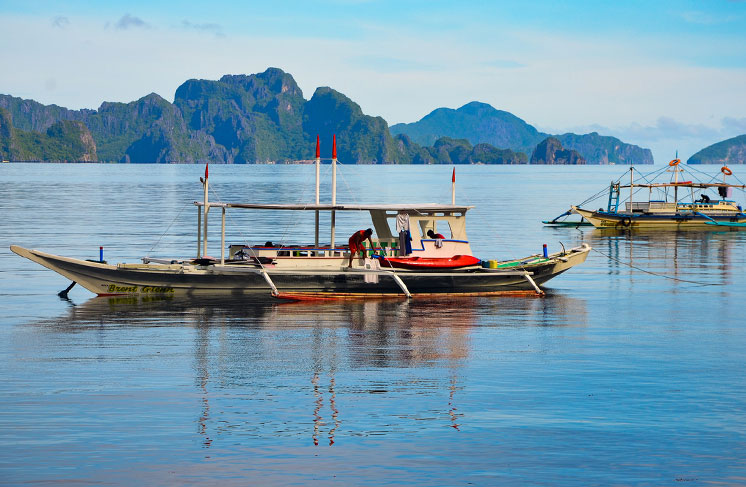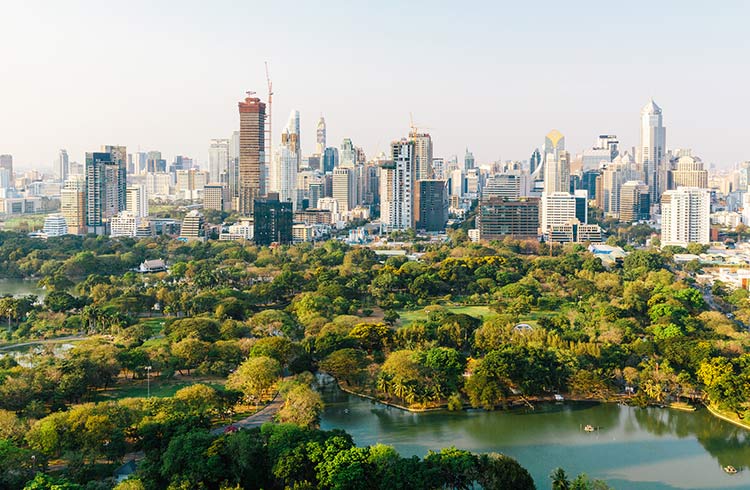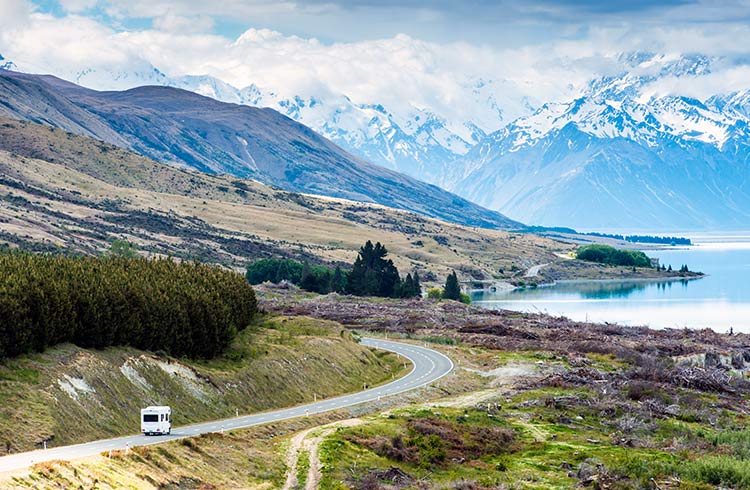Great Tips For Choosing an Eco-friendly Tour Operator
It’s not where we go but how we travel that matters. Book tour operators with care.
 Photo © Joanna Tovia
Photo © Joanna Tovia
If you’re reading this, chances are you want to do the right thing when you travel. You want to minimize your carbon footprint, tread lightly on the natural environments you visit, and contribute to local economies, particularly in developing countries.
You’re not alone. Almost three-quarters of travelers surveyed by Booking.com last year (more than 18,000 people from 18 countries) believe we need to make more sustainable choices when we travel, and 71% think travel companies should offer more sustainable travel choices.
One of the best ways to make sure your hard-earned travel funds have a positive impact is by traveling with an ethical tour operator.
- Why should I choose an ethical tour operator?
- How can I be sure a tour operator is ethical?
- Going your own way?
- Any certifications I should look for?
- Top 10 ethical tours checklist
Why should I choose an ethical tour operator?
Traveling with a company that has a track record of operating ethically removes a lot of the legwork, and guesswork, you’d otherwise have to do to ensure that every detail of your trip, from where you stay to which activities you do, is environmentally, socially and culturally responsible.
There are other advantages, for you as well as the places you visit. “By choosing an ethical tour operator, travelers are not only providing local communities with an income but also connecting with local people in a meaningful way that adds to a more authentic and memorable travel experience,” says Jake Hilbert, Global Purpose Specialist at G Adventures.
This goes for animal-based tours too. “Booking with a tour operator that has a strong animal welfare policy ensures you’ll have an animal-friendly experience while also reducing the demand for cruel animal attractions,” says World Animal Protection campaign executive Ben Pearson.
How can I be sure a tour operator is ethical?
Any tour operator that’s serious about operating ethically will list specific measures it has in place, a responsible travel policy or animal welfare guidelines for instance, rather than making broad statements such as “we care about the planet”.
“Look for operators that demonstrate their commitment to sustainability in tangible ways, by the way they operate their business, the type of itineraries they offer and how they treat their people,” says Donna Lawrence, Responsible Travel Manager at World Expeditions. It’s also wise to check that the company has just one local partner managing the itinerary in each destination, she says, “to ensure continuity and increase the likelihood that the entire itinerary will be ethical. With multiple local partners, it’s easy for the ethical aspects of the trip to get lost or diluted.”
Going your own way?
Planning to travel independently instead of on a group tour, booking activities along the way? The same rules apply. Decide which issue or issues matter most to you – such as climate action, conservation or community-based tourism – and choose a company that aligns with your values, says Jake Hilbert of G Adventures, while also taking responsibility for your own actions.
“Our founder, social entrepreneur Bruce Poon Tip, believes that tourism, when done right, has the potential to be the greatest form of wealth distribution the world has ever seen,” says Hilbert. “For independent travelers to do the right thing, that means making ethical choices such as supporting local communities and economies by eating local food at local restaurants, using local transport, staying in locally owned accommodation and using local guides.”
You can also use an aggregator such as the UK-based Responsible Travel, which only sells trips that meet its strict responsible travel criteria. It won’t sell, for instance, large ship cruises, rodeos, any trips involving elephant-riding or captive orcas or dolphins, or orphanage tourism.
Any certifications I should look for?
Look for logos indicating that the company is, say, a certified B Corp, adheres to Leave No Trace principles or is a member of 1% for the Planet, which means it donates one percent of its net profits to environmental organizations.
World Animal Protection has tools to help you assess if wildlife sanctuaries or animal-based experiences are ethically run, including a 12-page animal-friendly travel checklist. You can also check if the tour operator you’re planning to use is one of the 200-plus companies that have joined the Coalition for Ethical Wildlife Tourism and pledged not to sell or promote tours that include wildlife entertainment.
Top 10 ethical tours checklist
So, you’ve checked the tour operator’s website for a responsible travel section and specific actions it has taken to ensure its tours and operations are environmentally, socially and culturally sustainable. What’s next? Keeping these 10 criteria in mind before you book your next trip will keep you on an ethical track:
- Carbon offsets. Does the trip cost include carbon offsets? Two global adventure tour companies now offering this are World Expeditions and Intrepid Travel which has also been carbon neutral since 2010 and will be climate positive this year by funding Australia’s first seaweed permaculture platform off the coast of Tasmania.
- Animal welfare. Does the company have an animal welfare policy, preferably one endorsed by independent animal welfare experts? At the very least, don’t travel with any operators that exploit wild animals. “If you can ride, touch, feed or take a selfie with a wild animal, or see it perform tricks, you can be sure cruelty has been involved at some point,” says Ben Pearson of World Animal Protection.
- Child safety. Think Child Safe, based in Cambodia, has seven tips for travelers seeking child-friendly interactions, including not visiting orphanages or giving to begging children. Ethical tours strive to keep children safe, discourage child labor and keep families together.
- Ethical eating. For the ethical decisions we make three times a day, try to eat seasonal, local, organic whole foods (SLOW foods) based around local traditions rather than ‘Western-style’. Ethical tours should also include plant-based options to encourage planet-friendly eating.
- Local heroes. Ethical travelers try to ensure as much of their money as possible stays in communities. Seek out operators with a similar mindset.
- Clean and green. Ethical tour operators take action to reduce negative impacts on the natural environment in the destinations they visit. They might reduce single-use plastics by offering filtered water so guests can refill their own reusable bottles or collect litter on some of their trips as World Expeditions does in partnership with 10 Pieces.
- Small is best. Small group tours, with an average of 10 people, help us travel more responsibly. By interacting on a personal level with the people and places we visit, we’re more likely to understand the issues affecting these places and how we can help.
- Give back. Ethical tour operators often have (or have links with) not-for-profit foundations that help them give back to the communities they visit.
- Porter protection. In destinations where trekkers need help to transport gear and supplies on multi-day adventures, the people employed must be well paid, trained, clothed and supported for their work. Ethical tour operators support organizations such as the International Porter Protection Group and International Mountain Explorers Connection.
- The bigger picture. Ethical tour operators will always be looking ahead, thinking long-term and working towards big goals such as gender parity (ensuring equal numbers of female and male guides, for instance) and climate action, two of the UN’s 17 Sustainable Development Goals.
Related articles
Simple and flexible travel insurance
You can buy at home or while traveling, and claim online from anywhere in the world. With 150+ adventure activities covered and 24/7 emergency assistance.
Get a quote


No Comments